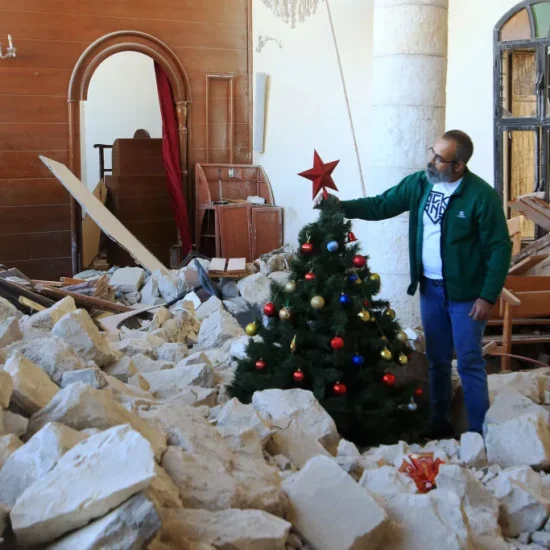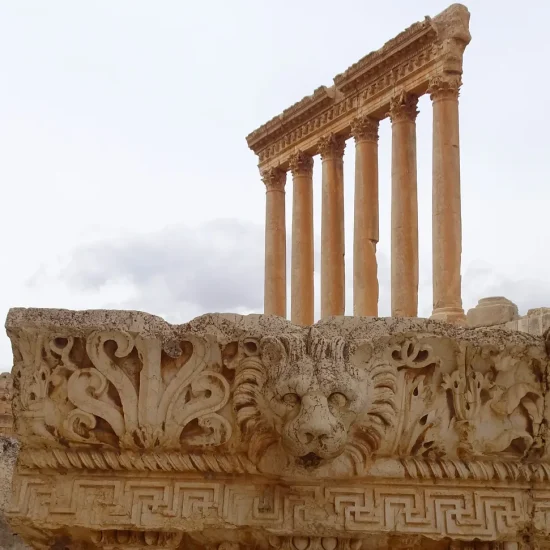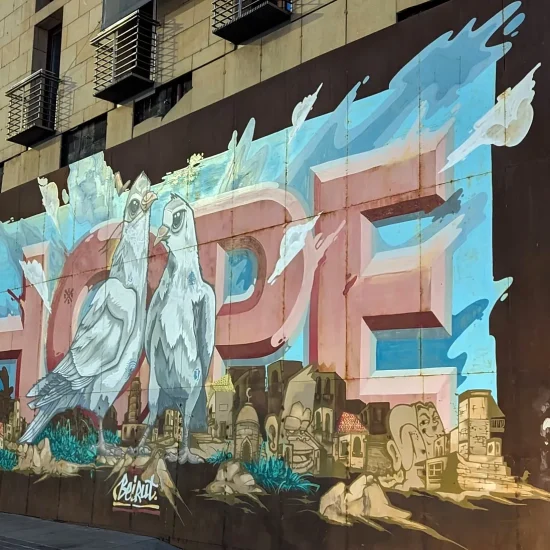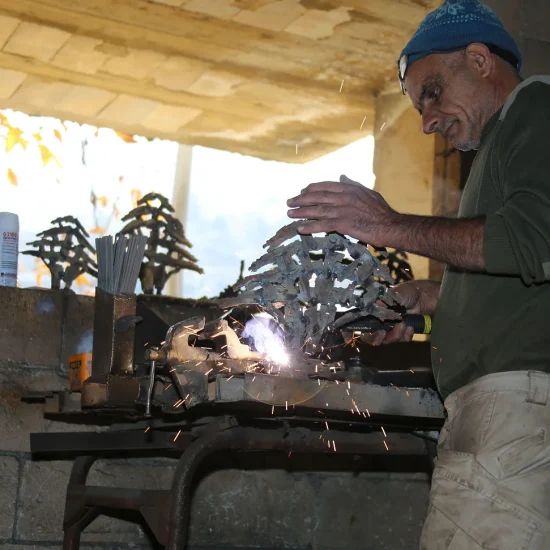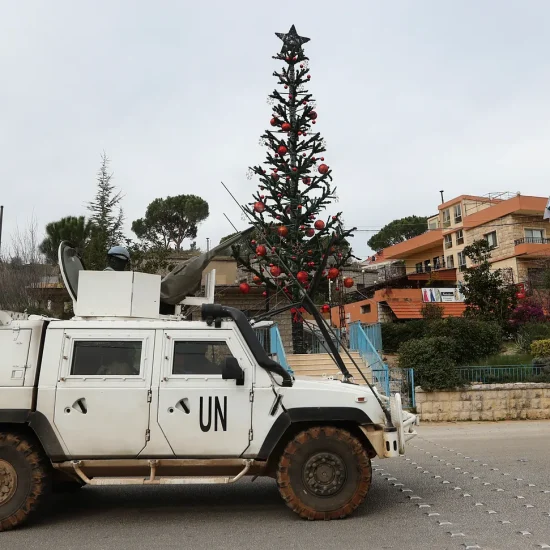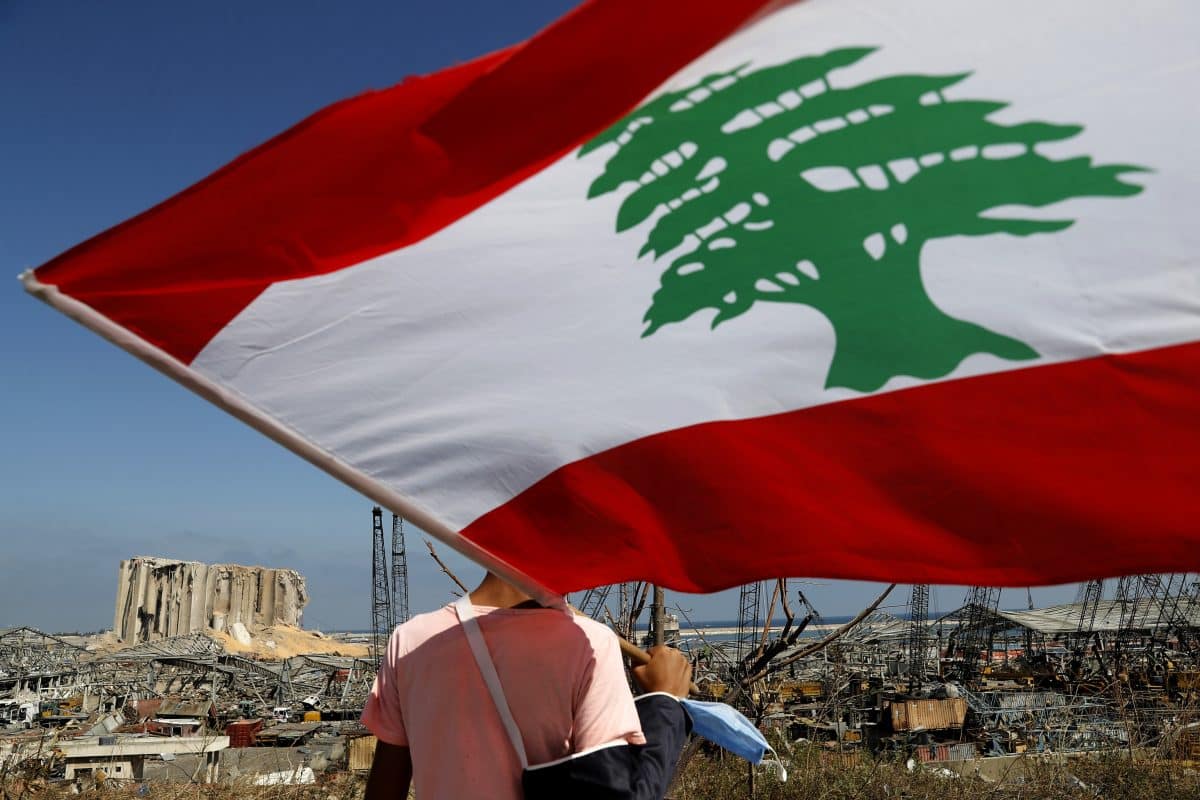
After a massive explosion in the Lebanese capital of Beirut Tuesday (Aug. 4), Baptists in that Middle Eastern nation immediately asked for prayers — and then started ministering to their neighbors before the dust from the blast even settled. The explosion, that climaxed after a fire ignited 2,750 tons of ammonium nitrate sitting in a warehouse, killed at least 157 people, injured more than 5,000, left about 300,000 people homeless, and caused more than $10 billion in damages.
Nabil Costa, executive director of the Lebanese Society for Educational & Social Development (also known as the Lebanese Baptist Society), said in a video released the day after the blast that before the explosion they thought “we’ve been through it all” as he noted difficulties the nation faced over the past year.
“Since September, forest fires, a financial crisis, bankruptcies, unemployment, refugee crisis, revolution in Lebanon, COVID-19,” he recounted in the video that shows footage from several Baptist ministries damaged by the blast despite being miles away. “But again over all this, yesterday we were surprised with explosion.”
Alia Abboud, chief development officer for LSESD, similarly wrote in an email Thursday (Aug. 6) that Baptist churches and ministries in nation had “over the past few years” ministered amid “one crisis after the other” as they sought “to stand by the vulnerable and the marginalized in our community, be they refugees or Lebanese.”
“Hope is a very rare commodity in my country today. The recent devastating explosion was like nothing that we have ever experienced before. It was also the last straw for many Lebanese,” she added. “As LSESD and as the Church we cannot afford to lose that which we have: hope.”
Thus, LSESD is working to provide food aid through partner churches to distribute to thousands of people, as well as provide basic needs like hygiene items and mattresses. Additionally, they need to repair damage to two of their ministries, the Beirut Baptist School (about two miles from the explosion) and the Gateway Bookshop (just over three miles from the explosion).
Wissam al-Saliby, advocacy officer for World Evangelical Alliance who is from Lebanon, told Word&Way his family was safe and he praised God they “only had some damages in my parents’ apartment.” He echoed concerns by LSESD leaders that economic troubles existed prior to the explosion that will make recovery more difficult.
“Beirut Baptist School sustained significant damages,” al-Saliby explained. “Nabil was already raising financial support prior to the blast, for the school and other evangelical schools, because of the economic crisis’ impact on schools. The blast just made things incredibly worse for Beirut’s schools.”
Arab Baptist Theological Seminary in a Beirut suburb less than six miles from the explosion, is again transitioning its campus to minister in this unusual time. Coronavirus earlier this year forced the school to move its coursework online in the Spring and left some students stranded as they were unable to travel to their home countries for months. In addition to facilitating online classes, ABTS also opened its empty housing rooms for doctors and nurses seeking a place to stay away from family members while treating COVID-19 patients.
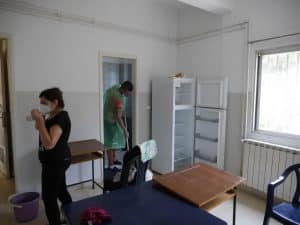
ABTS staff and members from a group from Faith Baptist Church in Beirut work to prepare places for homeless families to stay after the Aug. 4 explosion. (ABTS)
After the blast, ABTS shared on Facebook they were “preparing all our facilities to house families that lost their homes in yesterday’s explosion.” Wanting “to host as many families as we can,” members from local churches showed up to help prepare additional spaces on campus by cleaning, painting, and setting up new rooms.
Baptists ministering in Beirut with U.S.-based denominations are also helping facilitate relief efforts.
Daniel and Sarah Chetti, global servants with American Baptist International Ministries, saw and heard the explosion from their house about six miles away. Daniel, who teaches at ABTS, directs IM’s Project Enduring Love that supports mission work among Muslims in Egypt, Iraq, Lebanon, Morocco, Sudan, Syria, and Tunisia. Sarah directs INSAAF, a ministry to migrant workers. She reported that the blast shattered windows and knocked down doors at INSAAF’s office in downtown Beirut.
Similarly, Chaouki and Maha Boulos, field personnel in Beirut for the Cooperative Baptist Fellowship, were safely away from the blast but reported the immediate need for food, medicine, sleeping items, and cleaning supplies.
“For the past 18 years, the Fellowship has supported Chaouki and Maha Boulos,” said Steven Porter, CBF’s global missions coordinator. “Besides their well-known evangelistic efforts, the Bouloses also have concentrated on practical aid to Syrian refugees in the city. From regular food distribution supporting 500 refugee families to arranging medical and dental care, they have a team of 20 experienced volunteers waiting to offer relief to suffering people. But they need funds to purchase food and supplies. We can become part of God’s provision of ‘ever-present help’ to a people in trouble.”
Local Baptist congregations are also responding to assist their members and other neighbors. Resurrection Church, reported some damage to its multiple locations, as well to apartments and homes of “a lot from our congregation.” The church quickly started organizing people to help fix and clean damaged structures, provide medical care, and distribute food aid.
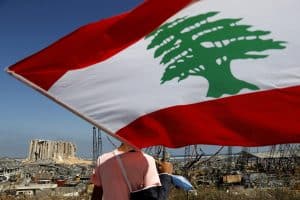
A man holds the Lebanese flag, as he looks at the scene of Tuesday’s explosion in Beirut, Lebanon, on Aug. 7, 2020. (Hussein Malla/Associated Press)
The needs are great and these relief efforts will likely continue for weeks and months. Even in a nation that’s experienced wars, disasters, and a significant influx of refugees from neighboring Syria, the blast will be remembered for its size and impact.
“Throughout the whole civil war [1975–1990], we never experienced anything like this blast,” Tony Skaff, pastor of Badaro Baptist Church in Beirut told Christianity Today. “But this incident made us remember, triggering many very sad memories within our community.”

